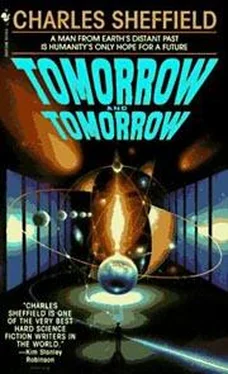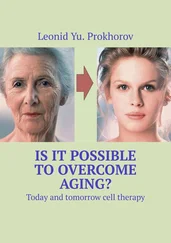“Of perhaps greater consequence to the rest of the solar system, at the time of Earth’s collapse and closure the planet was the central repository of all solar system data banks. Their loss had a profound effect on human development — even on human sanity. Everyone was suddenly deprived of a vital group memory and a species cohesive force. The process of reconstruction was begun, from partial databases elsewhere, but it was slow, uncertain, and imperfect. After Earth’s closure, every person in the Pluto cryowombs was revivified. Their memories assisted in the re-creation of the oldest historical records.”
In Drake, that information produced a feeling of bitter irony. He had been wrong, totally and hopelessly wrong. He had argued, back in the quiet suburban house while the children were noisy upstairs and Tom Lambert sat pale-faced
before him, that his own sacrifice was necessary. Without his help, Ana would never be resurrected. In fact, every long shot placed in Second Chance had paid off; even the “useless” ones, whom he had thought no one would bother to revive.
Instead of freezing himself he should have followed Tom Lambert’s advice, and lived out his life. Better yet, instead of fleeing from Pluto he should have placed himself with Ana in the cryowombs there. They would have been resurrected together, to live the rest of their lives with each other.
Instead…
“I said, everyone was revivified,” the Servitor continued. “That was of course not quite true. You alone, because I was armed with your specific instructions on your resurrection, were exempt.”
“I am conscious now, even if I am not resurrected.”
“True. We will come to that question in due course. But now, do you wish to go closer to Earth, for sentimental reasons?” The Servitor’s wiry broom of sensors turned toward Drake. “Even were we not in derived reality, it would be quite safe to go to Earth. There has never been interference with an approaching ship, not even ones that have landed upon the impenetrable outer surface. They are simply ignored.”
“That isn’t Earth, no matter what you call it.” Drake turned his back on the displays. “Take me away. There’s nothing for me here.”
Nothing for him, perhaps, anywhere in the solar system. That thought grew stronger as they flew outward from the Sun. It was not a problem of physical changes, which were substantial: Jupiter, glowing dully like a dying ember, flooding its satellites with abundant infrared radiation; the rings of Saturn, gone; Uranus like a miniature second sun illuminating the outer system; Neptune, vanished; Pluto basking in new heat to the point where nitrogen was a liquid on its surface and the cryowomb containing Drake and Ana — and only Drake and Ana — had been moved far out to a cooler location.
More important than all those were the changes that could not be seen. When Drake heard the words “fourteen million years” he had not at first thought through the implications. The news that everyone else in the cryowombs had been resurrected brought the understanding that he had become what he had once most feared: a living fossil, a creature from the remote past. Nothing he knew or was could interest anyone in this far future. Even the cryowombs themselves were an anachronism. Drake owed his own and Ana’s continued existence in cryosleep only to Milton’s literal, persistent, and conscientious mind.
And it was a mind. Drake could no longer think of the Servitor as a type of mechanical aide. Considered alone, Milton possessed mental powers that rivaled those of any human from Drake’s time; considered as part of some still-undefined composite, the Servitor far surpassed human intelligence.
The ship flew on, beyond the solar system known to Drake. The Sun dwindled to a point. The constellations that filled the sky formed new and anonymous patterns. Fourteen million years was long enough for the slow movement of the “fixed” stars to have changed the face of the heavens.
“The Oort Cloud,” Milton said, “was at your previous time of awakening undergoing its first exploration. It has changed a great deal. It is now a coalescence of a hundred million worldlets and interlocking intelligences. We do not propose to spend time there, since in your present form it is beyond your comprehension. Of greater interest to you is this.”
The Servitor did not give any noticeable signal, but suddenly the ship vanished. Drake was hanging in open space before a lopsided and flattened disk, composed of thousands of bright sparks of light.
“We are looking at human star space,” Milton went on. “This is the part of the galaxy that humanity and machines, in all their composite and complementary forms, have reached, developed, and colonized. Sol lies roughly at the center. Although less than a millionth of our whole galaxy, human space includes eighty thousand suns. The perimeter grows continually, and asymmetrically, at a substantial fraction of light speed.”
“Aliens?” The great disk seemed to be several hundred light-years across. Surely humans must have encountered fellow travelers through space and time. But the wire-broom head was shaking in dissent.
“Not yet. Life in abundance, yes. Even multicelled animal life, with nucleotide-base pair genetics and reproduction. But intelligence, no.” Milton was calm and fatalistic. “The search continues. Someday the contact will surely take place.
“However, this is the end of our own brief outward journey. We must return now to the vicinity of your cryotank; there we face a more immediate problem.”
Derived reality had at least one advantage over normal space and time: travel could be instantaneous. Milton might speak of “heading back” to the region of the cryotanks, but that was for Drake’s convenience. There had been no physical travel. At one moment they were hovering far outside the solar system, contemplating the vast lopsided region of the spiral arm that was occupied by humans and their constructs; then they were again looking out over the Bay of Naples, where the dark clouds still hovered.
Ariel nodded to Drake, and began to speak.
“You have seen something of what humans and our inorganic companions can do and have done. Now it is time to talk of what we cannot do. Our limitations explain why we found it necessary to interact with you. The reason is simply stated: You cannot remain in the cryowomb for the indefinite future.”
Drake had foreseen such a moment many millions of years ago, before he was ever frozen. Someday all his assets would become worthless. Who then would pay for the cost of continued cryotank operation?
He had hoped that the problem was solved when Par Leon informed him that activities involving the use of human time were the only ones with an implied cost. Now, apparently, the rules had changed again.
But he had learned not to accept negative answers. “Is there any way that I can be resurrected and earn credit? All that I know may be without value, but I would volunteer for any function that might allow Ana to remain in the cryowomb.”
“You misunderstand. Maintenance of the cryowomb will shortly cease, but not because of any problems of maintenance. Each tank has its own long-lived power source, able to preserve a cryocorpse for an extremely long time without external support. Long enough, in fact, that we do not know its true lifetime, except that it would be measured in billions of years. The cryowomb with its cryotanks is already at the extreme edge of the Oort Cloud, and it is steadily drifting farther out to interstellar space. You and Ana have long been its only occupants. That, however, is not the reason why the cryowomb is increasingly irrelevant. The problem is far more basic. Look at this.”
Читать дальше












